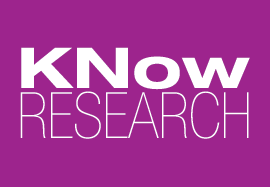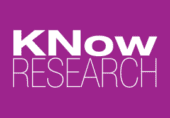From Anthropology to Insights: a Learning Curve
When I joined the University of Wisconsin-Madison as an undergraduate in 2017, my college journey appeared to be a fairly linear endeavor. From what I had gathered, students would enter with some sort of gravitational pull into an educational field, learn everything there is to know, and then graduate with a degree proclaiming their expertise to the world. It was a clear path with a well-defined goal at the end of the tunnel; all I had to do was ride it to the finish line. But as we’ve all experienced in our lives, the actual process of learning is anything but linear.
Similar to many college freshmen, I had a clearer sense of what careers I was NOT inclined to pursue–essentially, those requiring basic math skills–-rather than a calling to a specific vocation. However, I followed my instincts to an anthropology classroom, and it was there that I discovered my own love for qualitative research. On a timeline spanning millennia, I was able to learn the ins and outs of human civilization, which is just as incomprehensible of a subject matter as you can imagine! But even with my enthusiasm for anthropology, I still had a difficult time translating that passion into an eventual career. If I was totally honest with myself, I had an aversion to becoming an expert in any field. I loved anthropology because of the singular vast landscape of the human experience, and I couldn’t just pick a single timeline or civilization to study for the rest of my life.
I took a step back and returned to the one thing I was good at – qualitative research. Thanks to anthropology, I had a Swiss army knife of methodologies and analytical tools; all I needed now was another educational path to apply them!
I found that path during my first internship when I studied the economic collapse of Iceland in 2008. I was fortunate enough to travel to Iceland where I was able to talk to workers from a variety of different sectors–from fishermen to dairy farmers to politicians. Each had their individual story of how the brutal crash impacted their respective industry, and I was floored by how each Icelandic business was able to adapt and recover.
That was a very pivotal moment in my learning journey because I realized that as a qualitative researcher, you’re not the expert on the story – your participant is. Our job is to hand the mic over and listen. As storytellers, it’s then our responsibility to bring the participant’s voice to the table.
Spurred by this qualitative-business fusion I had found across the sea, my curiosity guided me to the Marketing department at UW-Madison. There, I discovered market research and an overall appreciation for social science in the corporate world. I needed to learn about this industry outside of a classroom, and thus, KNow Research came into my life. Since joining the team at the beginning of 2022, I’ve felt like I am in a constant state of learning. Adapting to different tools, new thought processes, and a new phase of my life can feel overwhelming at times, but I found it’s easier to learn when you’re supported by an encouraging team.
Looking forward, I am excited to learn more about this world of qualitative insights as well as learn more about the young professional that I’m becoming. I feel excited and a tad nervous about what’s to come, but it feels good to have finally found the right path for me.
Curious about how other young professionals are joining the market research industry? Check out our Coordinator, Emily Breay’s story here!
What are the strategies that help you promote a constant state of learning in your own life? Share your tips with us on LinkedIn, Instagram, or Twitter!
#anthropology #learning #youngprofessionals #marketresearch #college #participantvoice

